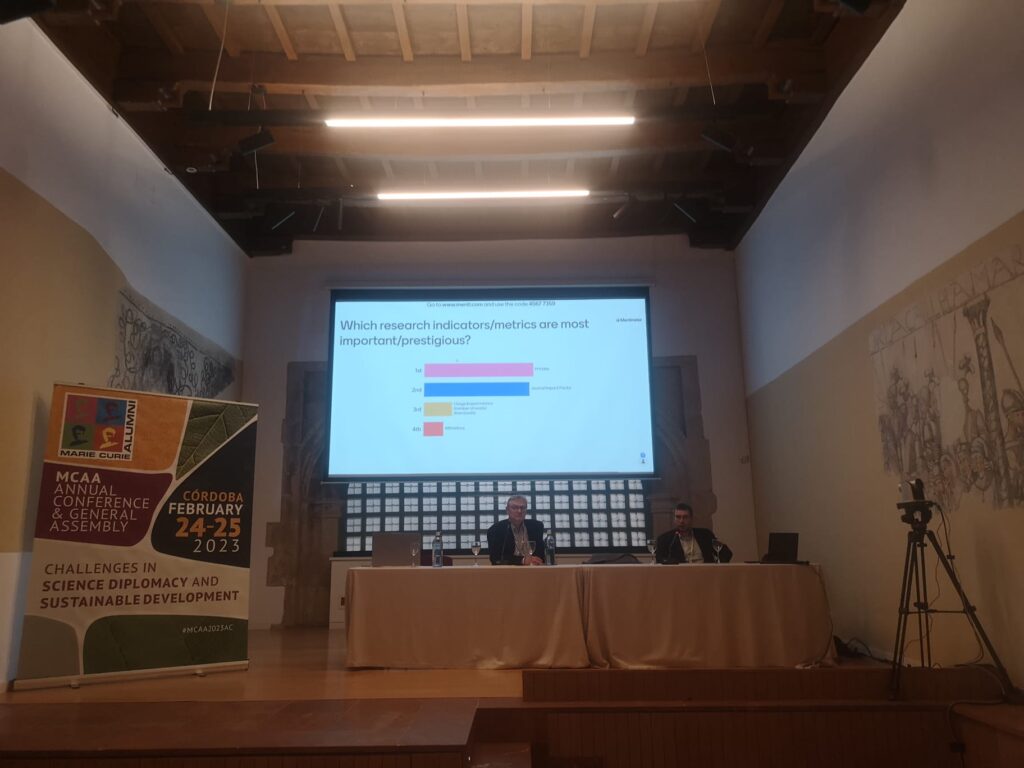
Discussion on How Can We Reward Researchers for Open Science at the MCAA Annual Conference
Discussion on How Can We Reward Researchers for Open Science at the MCAA Annual Conference https://opusproject.eu/wp-content/uploads/2023/03/IMG-20230324-WA0001-1024x768.jpg 1024 768 Open and Universal Science (OPUS) Project Open and Universal Science (OPUS) Project https://opusproject.eu/wp-content/uploads/2023/03/IMG-20230324-WA0001-1024x768.jpgOpen science is a movement that promotes transparency, collaboration, and sharing of research data and results. The aim is to make science more accessible and reproducible, which in turn accelerates scientific progress. However, one of the biggest challenges facing open science is the lack of incentives for researchers to engage in open practices. This issue was addressed at the MCAA Annual Conference by representatives of the OPUS project, Gareth O’Neill (Technopolis Group), Clare Viney (Vitae), Brian Cahill (MCAA), and Sebastian Dahle (Eurodoc), in a panel discussion on “How Can We Reward Researchers for Open Science?”
During the session, various questions were discussed, including the precarity of a research career, the obstacles for Research Assessment, and indicators and metrics on how researchers should be rewarded for Open Science. The team members presented the activities of the OPUS project, which is currently developing a set of interventions and metrics for Open Science towards a system that incentivizes and rewards researchers to take up practices of providing open access to research outputs, early and open sharing of research, participation in open peer-review, measures to ensure reproducibility of results, and involving all stakeholders in co-creation.
Insights from the audience during the session
During the session, the audience was asked to participate with feedback on specific questions regarding open science and research assessment. Some results are
presented below.
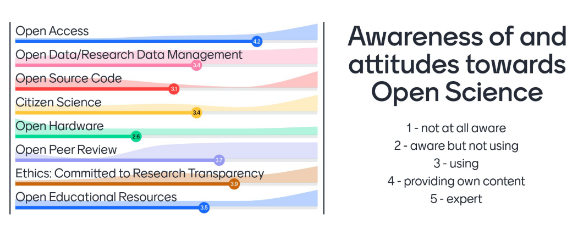
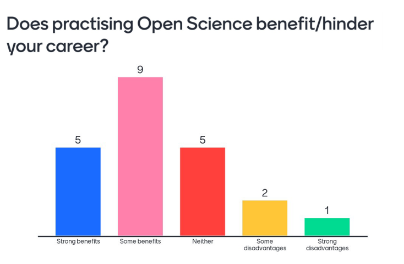
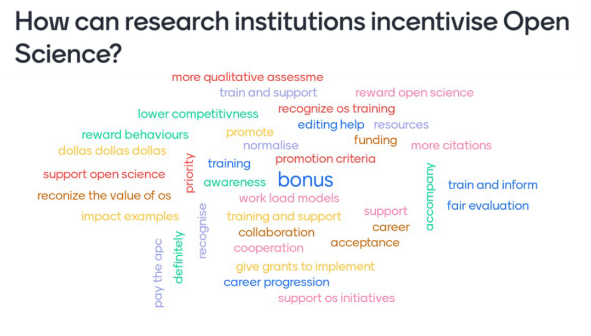
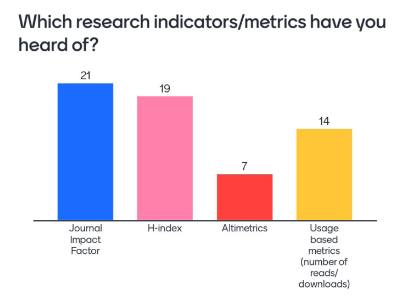
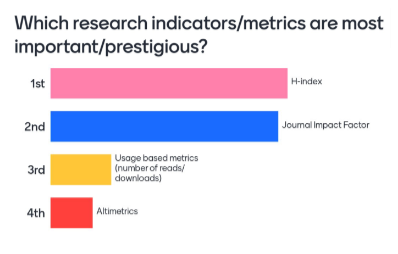
Some ideas on how researchers can be rewarded for practicing
Financial suppport
The discussion highlighted some ways in which researchers can be rewarded for practicing open science. Financial support is one of them, where funding agencies and research institutions can provide financial incentives to researchers who engage in open science. Institutions could also reward researchers who publish in open-access journals by providing additional funding or recognition. These financial incentives can motivate researchers to embrace open science and make their research more accessible to the wider scientific community.
Academic promotions and awards
Researchers can also be recognized for their contributions to open science through academic promotions and awards. Institutions could create specific awards for researchers who engage in open science, such as the “Open Science Award” or “Open Data Award.” These awards could be given to researchers who have made significant contributions to open science, such as sharing data, developing open-source software, or publishing in open-access journals. Furthermore, institutions could consider open science activities when making academic promotions and tenure decisions.
Collaboration and opportunities for networking
Collaboration and opportunities for networking are also essential rewards for researchers. Open science practices can facilitate collaboration between researchers, as open data and research findings are more accessible to others in the scientific community. Institutions could provide researchers with opportunities to network and collaborate with others who share their open science values. This could be achieved through organized events, such as workshops and conferences, or through online communities, such as social media groups or open science forums.
Public engagement and outreach
Lastly, researchers could be rewarded through increased public engagement and outreach. Open science practices can help to increase the public’s understanding and appreciation of scientific research. Institutions could recognize and reward researchers who engage in open science practices that promote public engagement, such as communicating their research findings to the media or presenting at public events.
What are the next steps and how can OPUS help?
The OPUS project is currently developing a researcher assessment framework together with interventions to support the implementation of the framework at research-performing organizations and research-funding organizations. The framework will provide a comprehensive suite of indicators for these organizations to incentivize and reward their researchers for Open Science. The draft framework will be shared with key stakeholders and the research community for feedback through a public consultation in 2023.
In conclusion, by rewarding researchers for their contributions to open science, we can incentivize more researchers to embrace open science practices, leading to more accessible and reproducible research, and ultimately, scientific progress. The OPUS project is working towards this goal, and it is hoped that the researcher assessment framework developed by the project will help organizations to incentivize and reward their researchers for Open Science practices.
- Posted In:
- Open Science News




